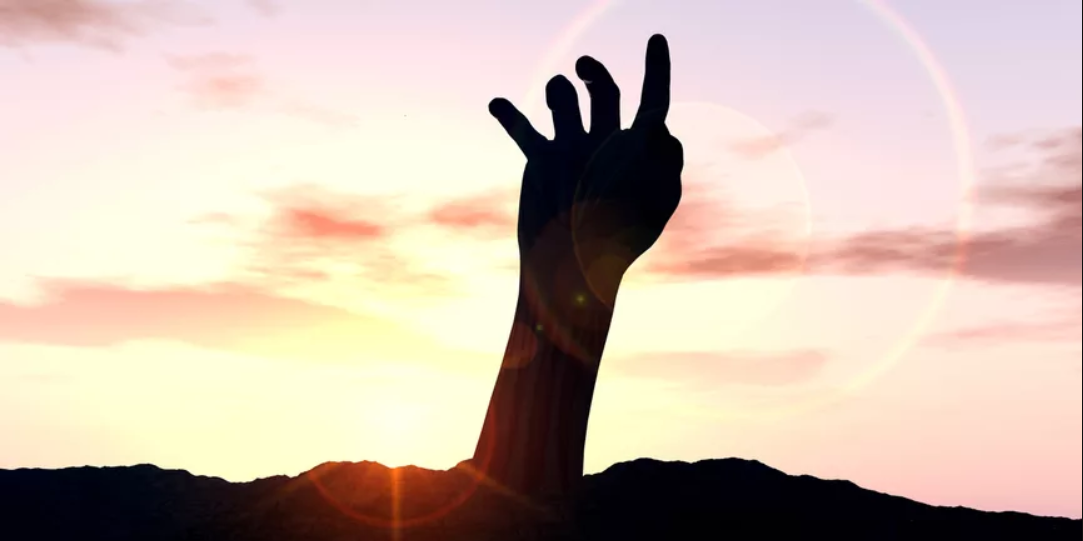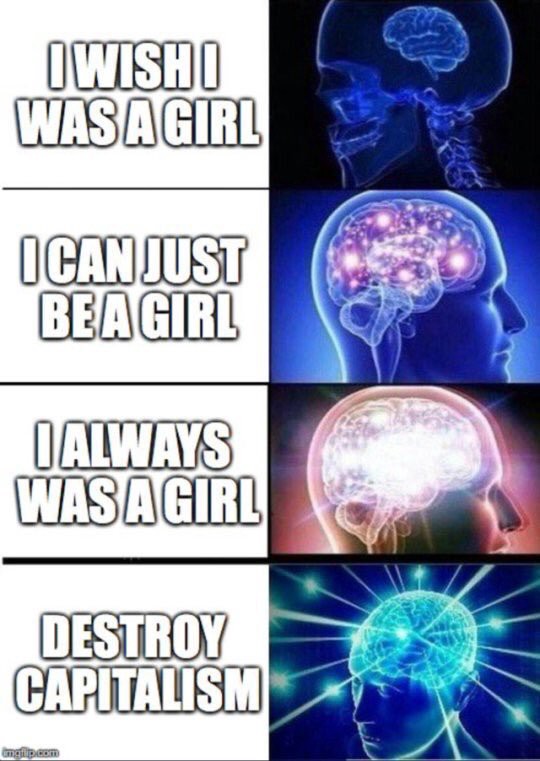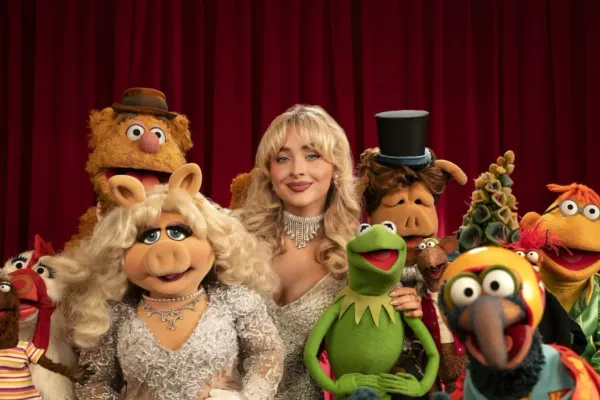Dead name
If I'm finally me, then where did I go?

I don’t like to use the term “dead name” to refer to the name I used before coming out as trans. For one thing, my situation is pretty unique — you can Google me and instantly find out my former name in an instant. But for another, it’s not like I’m not proud of the things I wrote and did under that name. I wrote some amazing stuff and did some amazing things.
I’ve come to prefer “old name” or even “former name.” “Dead name” implies a person I’m eager to put behind me, but by virtue of everything that led to me being able to come out as trans, I have to acknowledge the self that I was, even if it’s easier to think of that person as a kind of human shield.
But I understand why “dead name” has become so ubiquitous among my trans fellow travelers. “Old name” or “former name” implies that, on some level, the person I was was a real person who decided one day that he was somebody else. And that’s really not how I feel about it. The longer I embrace my Emily self, the more I realize that every single part of me was optimized to be this person, in a way it wasn’t to be another. Being my old self felt like pushing a boulder up a hill. Being Emily feels like going for a walk.

It’s honestly astonishing to me at times that I used to live an entirely different life, in another gender. It’s been so easy for everything about me to just switch over! In the wake of the movie Joker coming out, a lot of people have been saying the name “Todd Phillips” frequently, and I realized with a start a short while ago that I no longer react to that name. Whatever part of my brain is centered on “my name” — one of the oldest, most well-entrenched neural pathways I have — has shifted itself to thoroughly accommodate the name Emily. And it feels good and right. Emily just feels like me, in a way that is almost impossible to explain.
But I’m troubled by one thing: If I’m finally me, then where did I go?
There’s a growing desire in trans circles to cease the incredibly common trope of cis people mourning us as though we’ve died, when we’re still standing right here. The action of claiming our lives is a joyful one, this theory goes, and while there might be some mourning necessary for our cis loved ones, they shouldn’t burden us with that mourning, nor should they, say, publish it in national news outlets, as happens far too often.
Broadly speaking, I agree with these goals. I don’t really think I should be responsible for any of my cis loved ones’ feelings about my transition, and I would really rather this profoundly beautiful moment in my life not be reduced to a funeral that I get to attend. But I would also be lying if I said that I didn’t feel a little sadness at the end of my old self as a private and public persona. I worked really hard to build a life I thought I wanted to lead, and I tried really hard to lead a good life. And then it turned out I needed something else entirely.
To be sure, me saying, “I’m sad about the person I was” is different from my mom saying, “I’m sad my son is gone,” because the former is at least tinged with some degree of regret — what if I hadn’t spent 37 years inching up toward transition? — and the latter is just grief unmoored from reality. (I am right here, and I am a great daughter.) But I still feel a little like I’m failing the community when I have feelings about the person I used to be.
Here, let me put this another way. For my whole adult life, I have been mourning the lost potential in a friendship I had in high school with another girl I usually call Hannah (not her real name). A Korean adoptee growing up in the lily white world of Midwestern Iowa, she was the only other adopted person I knew growing up.
When I wrote about our friendship in 2016, I wrote:
I often called Hannah my best friend, though I don't know if this was strictly accurate. I recognized her, and I think she recognized me. We were a friendship to be declared later.
We were both adopted, and though we never talked about it, there was, between us, the contours of an incredibly deep, lasting friendship, which is enough when you're 18. We grew up some distance apart from each other (the girl I mentioned dating earlier was one of her friends), but after we managed to find each other (no easy feat in this life), we spent long hours on the phone and made excuses to see each other.
It's here I have to be careful, because what I've described above makes it sound like we were infatuated with each other, and though I definitely was with Hannah, she never was with me. Friendship, yes. Anything else, no, though she left that possibility just open enough (or I thought she did) for me to become convinced it was out there. Even though I dated her friend, even though the limitations of geography and timing kept thwarting us, on some level, for all the time she was a presence in my life, Hannah was always the person I was truest to.
At the time I wrote this piece, I thought of Hannah as someone I fundamentally misunderstood with whom I could have been great friends had I not felt so certain that we could have been in love. Rereading those passages now, I realize that Hannah was the girl friend I had always wanted without knowing it, the first person to look at me and really see Emily, not the construct I presented myself as. She didn’t know she was doing this; I didn’t know she was either. But it was what underpinned our relationship.
The sadness I feel about Hannah, then, isn’t really about Hannah (who remains a friend, if not a close one). It’s about Emily. It’s about how I was trapped beneath layers of myself, layers that kept me from what could have been one of the great friendships of my life. Instead, I was somebody else when I knew her, and now I live in the shadow of what might have been.

That shadow overhangs a lot of my life, really. I can think about moments throughout my life when some small inner voice insisted that I do something, and I now realize that was Emily making herself known. (It feels weird to speak about myself in third person, but this is all an inherently disorienting concept.) I listened to her most of the time, and it ended up being a great strategy. But I never listened to her about the whole, “You’re a girl” thing, and that wasn’t such a great one.
I used the word “construct” a few paragraphs ago, and the more that I try to make sense of my life pre-coming out, the more that it seems accurate. I was a kind of golem of a person, pulled together from bits and pieces of observing men and thinking I could sort of mimic what they were doing. (I’ve always been a surprisingly good mimic — a friend pointed out to me recently just how rapidly I’ve rearranged my body language to code as female — and I wonder if this is part of what it was.) I was real but also not. There was a core self (Emily) and then a collection of routines and programs that added up to a person if you didn’t look too closely.
Of course, people looked closely, and what they saw wasn’t alive, not really. It was a skin wrapped over something else and doing a reasonable approximation of a person. One reason it is so hard to talk about being trans without inadvertently invoking the horrors of being alive is because our existences often are horror stories in action. Whoever I was has been obliterated by becoming who I am. He’s not dead, not really. He was atomized and dispersed to the winds, and then I showed up in the middle of a life that sometimes feels like somebody else built it for me.
Read me: The terrific trans writer Meredith Talusan wrote a piece for the New York Times (a publication that has printed so many stories by cis people about how saddened they are by their loved ones’ transitions) that offers a wonderful argument for the idea that our loved ones should celebrate our transitions. I agree! But also read Meredith, because she’s so much smarter about it than I am:
What is often left unspoken is that a trans person is expected to provide emotional support through this grieving process. My father has repeatedly said I should always be grateful he supported me when other parents wouldn’t. Yet I’ve come to find it deeply unfair that trans people are often left with the burden of assuaging their loved ones’ grief.
Not only does this expectation posit that being transgender is a trans person’s fault, but it also fails to account for the fact that transitioning is likely to be many times more difficult for the trans person than for any loved one. Most important, grief as a reaction to transition is a form of transphobia; it reduces a person’s very being to their gender, and reveals that a loved one cares more about a phantom image than for the trans person they supposedly love, who is right in front of them.
Watch me: The terrific Bong Joon-ho film Parasite is creeping its way across the country, and while it doesn’t really have any thematic resonances with this week’s subject matter (I guess it’s kind of a horror movie???), it’s a movie you should see as soon as possible. I have never seen anything quite like it.
And another thing…: I am pretty well obsessed with the original cast recording of the musical Hadestown, which I hope to write something about soon (probably on Vox). The show itself is a wondrous construction, but I love the generosity of its creative team in making essentially the entirety of it available on all major musical platforms, so you can listen to it right, right, right now. It makes me cry a lot. That’s an endorsement, I promise!
Episodes is published once per week and is about whatever I feel like that particular week. Suggest topics for future installments via email or on Twitter. Read more of my work at Vox




